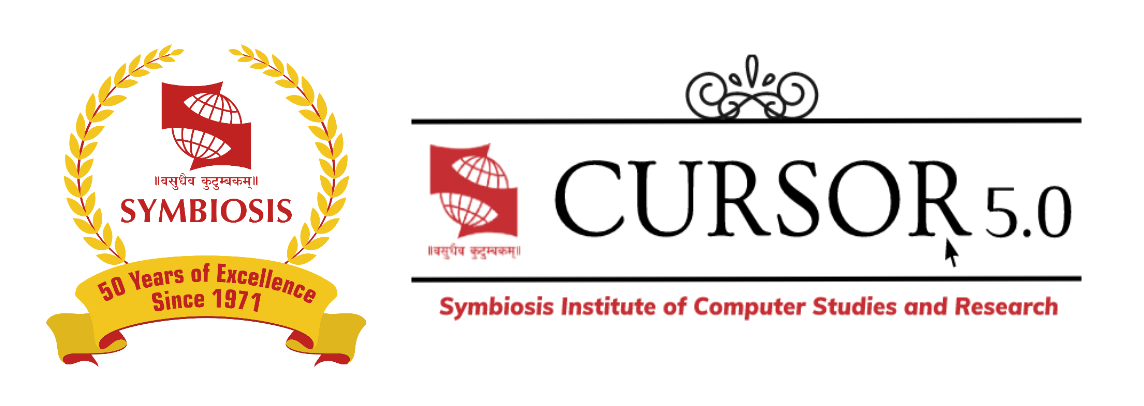Date: 22nd November 2023
Time: 12:30 pm - 1:30 pm
Venue: Symbiosis Institute of Computer Studies and Research
Faculty Mentor: Ms. Hema Gaikwad
Event Details:
On 22nd November 2023, Symbiosis Institute of Computer Studies and Research, Pune organised Janjatiya Gaurav Divas at reading room from 12:30 p.m. to 1.30 p.m. All the student council members assembled at reading room of SICSR for debating, discussing and writing articles regarding tribal leaders and their contribution towards freedom struggle.
- Debate competition:
- Written assignments:
The centrepiece of Janjatiya Gaurav Divas is the lively debate competition that brings together participants from diverse backgrounds. Teams passionately engage in discussions on topics ranging from the preservation of indigenous languages to the protection of ancestral lands. The debates not only showcase the participants' rhetorical skills but also provide a platform for the exchange of ideas and perspectives. The judging panel, composed of experts in indigenous studies and community leaders, evaluates the debates based on content, articulation, and the ability to present well-researched arguments.
Complementing the debate competition is the written assignment segment, where participants are tasked with delving into specific aspects of indigenous culture, history, or contemporary issues. The assignments encourage in-depth research, critical analysis, and creative expression. Participants are given the opportunity to explore topics such as indigenous art forms, sustainable practices, or the impact of globalization on indigenous communities. The written assignments contribute to the intellectual component of the event, fostering a deeper understanding of the challenges faced by indigenous populations.
Some more information about Janjatiya Gaurav Diwas:
India, a country with a wide range of customs and civilizations, is also home to numerous indigenous groups, each with a distinct identity and background. Tribal chiefs have become strong figures in these communities, fighting for the rights and welfare of their people. This article examines the lives and accomplishments of three significant Indian tribal leaders who have made a lasting impact on the nation.
- Birsa Munda (Munda Tribe, Jharkhand):
- Bir Horo (Santhal Tribe, West Bengal):
- Rani Gaidinliu (Zeliangrong Tribe, Manipur):
- Kochunni (Kurichya tribe, Kerala)
Often called by his devotees the "Bhagwan" or deity, Birsa Munda was a revolutionary tribal leader who was instrumental in the late 19th-century Munda Rebellion against British control. Birsa, who was born in Bihar (now Jharkhand) in 1875, aspired to create a Munda Raj and free his people from repressive laws. The struggles in India for tribal rights are still motivated by his vision of a just society and his leadership.
A well-known leader of the Santhal tribe in West Bengal, devoted his life to the betterment of his community. Bir Horo, who was born in West Bengal in the early 20th century, played a significant role in the Santhal Hool, an armed uprising against the exploitative tactics used by moneylenders and landowners. Through his efforts, the Santhal Parganas were acknowledged as a distinct tribal territory, and he continues to be a source of inspiration for the Santhal people's tenacity.
An important figure in the Indian independence movement was the political and spiritual leader of the Naga people. She joined the Heraka religious movement after being born in modern-day Manipur in 1915, and then she joined the Indian National Army under the command of Netaji Subhas Chandra Bose. She persisted in fighting for the Zeliangrong people's rights after independence, promoting the acknowledgement of their unique identity and independence.
Respected tribal chief Kochunni, who belonged to the Kurichya tribe in Kerala, dedicated his life to protecting his people's cultural legacy. Sustainable practices and peaceful harmony with environment were prioritized by his leadership. In Kerala, Kochunni vigorously pursued the preservation of tribal lands and customs, the advancement of education, and the mending of the divide between the tribal groups and the dominant civilization.
Summary:
These Indian tribal chiefs' tales demonstrate the richness and diversity of India's indigenous populations. Their hardships and victories are a reflection of the larger story of indigenous rights, cultural preservation, and the continuous work to build a society that is more just and inclusive. It is vital to acknowledge and support the ongoing efforts of tribal groups in India to prosper while maintaining their distinctive identities in the face of contemporary difficulties, even as we honor the legacy of these leaders.
Photographs of the event:



The members of student council gathered to reflect upon the rich heritage and contributions of our tribal communities



